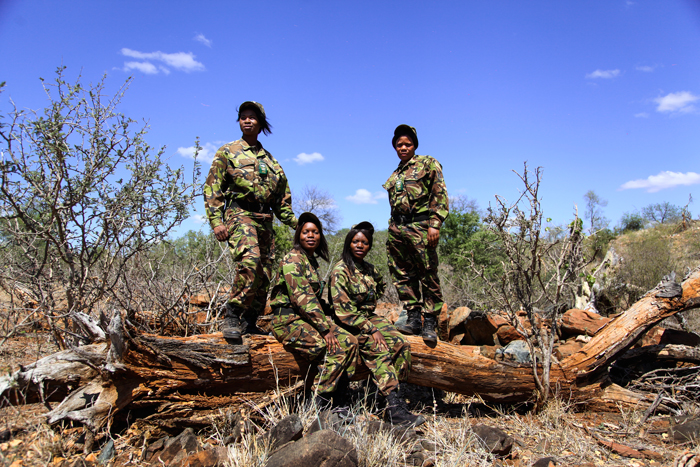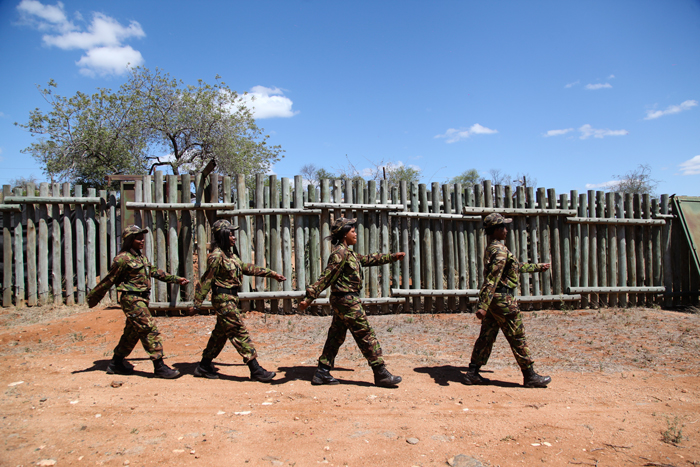Meet the Black Mambas anti-poaching unit, the all-female anti-poaching unit that is making waves in conservation. Written by: Lee-Ann Olwage
The Black Mamba anti-poaching unit was founded in 2013 by Transfrontier Africa – created to protect the Olifants West Region of Balule Nature Reserve in Greater Kruger, South Africa.

The United Nations have recently awarded the Mambas The Champions of the Earth Award for 2015. This is a remarkable achievement and shows that the world is noticing the incredible work these women are doing.
The Black Mambas are often portrayed as women doing a man’s job. But perhaps that is not the case. Perhaps they are women doing what women do best: nurturing, educating, and caring for our communities and wildlife.

When Craig Spencer from Transfrontier Africa was asked to help with the increasing poaching problem, he realised that a new approach was needed. Poaching is evolving, and the poachers now have access to greater tools than before. He knew that we couldn’t solve the same old problem with the same old tools. A new approach was needed. Hence, the Black Mamba initiative came into being.

“We need a rapid return on our investment and, therefore, we invest in the women of these communities.” The women take care of their families, the sick and the elderly. They are the ones harvesting firewood and providing for the household. The women are the heart and soul of the community, and by investing in them, Craig knew that he was investing in the future of these communities and our natural heritage.

Initially, the men laughed at the women, telling them not to go out and do a man’s job but rather stay home to cook and clean. This perception soon changed, and the Mambas are now highly respected within their communities and valued for their work.
The Black Mamba initiative is a social upliftment programme that addresses unemployment and assists with skills development in South Africa. All Black Mamba recruits are from local, previously disadvantaged communities, and they go through a rigorous six-week training programme prior to deployment with an existing unit to further their training through work experience.

“Yes, our main objective is the protection of wildlife, but we also strive to create a strong bond and educate the communities that live on the boundaries of Balule and the Greater Kruger about the benefits of saving their natural heritage. We believe the war on poaching will not be won with guns and bullets, but through the local communities and education,” says Spencer.
To comment on this story: Login (or sign up) to our app here - it's a troll-free safe place 🙂.![]()






